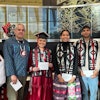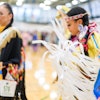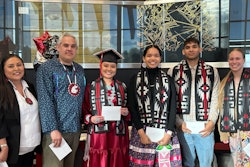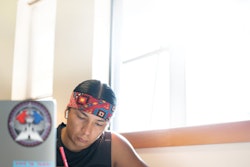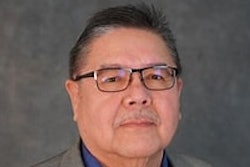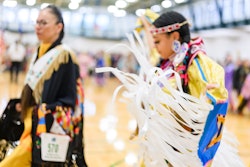Indigenous Ways of Knowing has been making its way out of tribal colleges into mainstream universities, but this method of teaching has its critics.
Indigenous or native ways of knowing, indigenous knowledge, indigenous science, traditional ecological knowledge are terms that have been making their way out of tribal colleges and into mainstream universities in recent years. What exactly do they mean?
According to Dr. Dawn Adrian Adams, Choctaw, founder of Tapestry Institute, these terms refer to two separate, yet intertwined endeavors, epistemology or types of knowledge and pedagogy, methods of teaching and learning. Tapestry Institute is a think tank of elders, artists, scientists and scholars who research and advocate an indigenous worldview. Adams insists that diversity is the power of their groups, and that the institute focuses on studying the natural world and reconnecting people to it.
Dr. Lori Lambert, of the Mi’kmaq/Abenake tribes, e-learning trainer for online faculty at Salish Kootenai College, a tribal college in Montana, defines tribal knowledge or science as scientific skills that native people have valued and used for generations to discover the dependable way things work in their world. Indigenous knowledge is also deeply rooted in place and tied to culture; it includes beliefs, values and practices that are usually passed along orally.
Indigenous ways of knowing, according to Adams, refers to pedagogy. IWOK often uses stories to engage learners and emphasizes the notion of community in the process. Strictly speaking, IWOK is focused on the process of learning rather than the outcome and emphasizes the holistic understanding of a topic or situation. Adams maintains that a science class taught from the mainstream Western perspective would be primarily focused on clear-cut outcomes.
